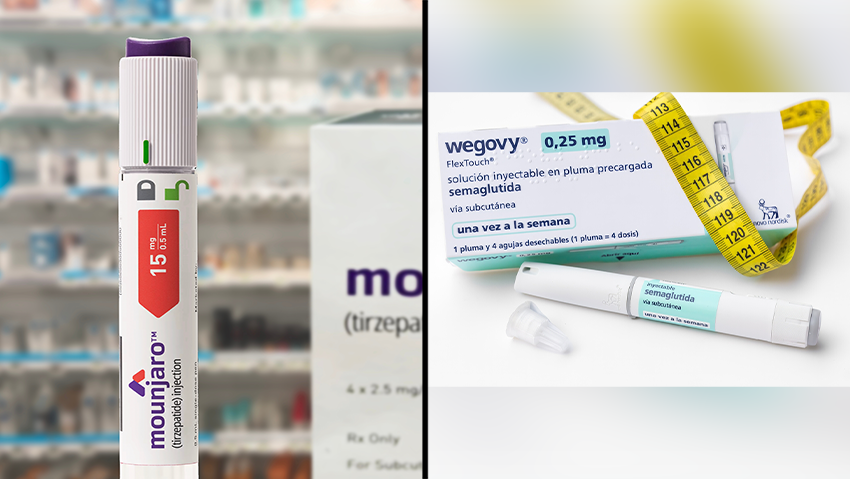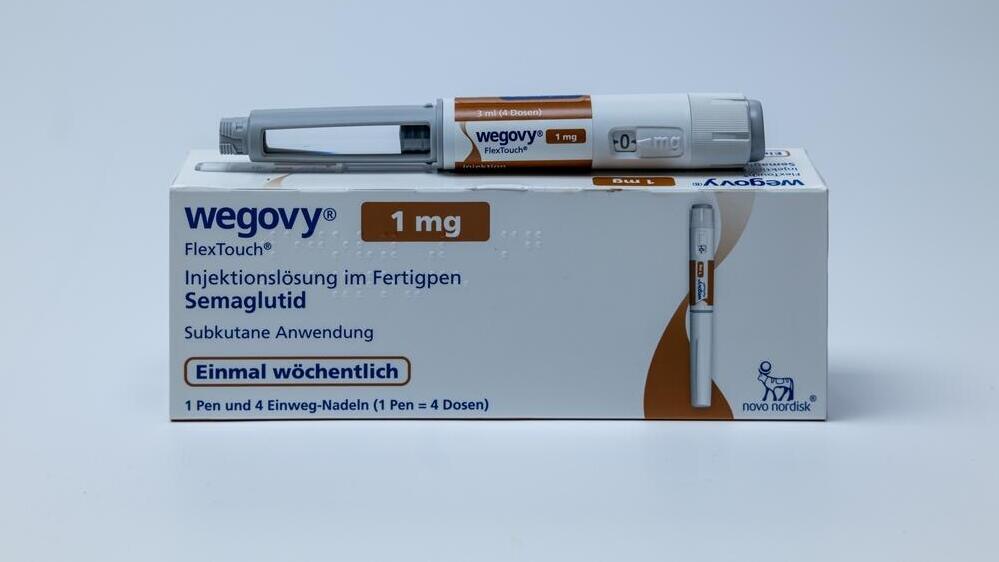Getting your Trinity Audio player ready...
Mounjaro (tirzepatide), a weight-loss drug developed by Eli Lilly, has demonstrated significantly better results compared to Novo Nordisk’s Wegovy (semaglutide) in a head-to-head study. According to preliminary data from Eli Lilly, patients treated with Mounjaro experienced an average weight reduction of 20.2%, compared to 13.7% for those using Wegovy after 72 weeks of treatment. Additionally, 31.6% of participants on Mounjaro achieved at least a 25% weight loss, compared to 16.1% for those on Wegovy.
The findings come from the advanced SURMOUNT-5 clinical trial, which compared Mounjaro – a dual GIP and GLP-1 receptor agonist – to Wegovy, a GLP-1 receptor agonist, in adults with obesity who were not diabetic. The study involved 751 participants in the U.S. and Puerto Rico. Patients were randomized to receive the maximum tolerated doses of either Mounjaro (10 mg or 15 mg) or Wegovy (1.7 mg or 2.4 mg).
How Mounjaro works
Mounjaro leverages dual mechanisms by targeting the GIP and GLP-1 hormones, enhancing insulin secretion, reducing blood sugar levels, suppressing appetite and promoting weight loss. GIP is also thought to have beneficial effects on subcutaneous fat tissue, aiding proper fat storage and reducing ectopic fat accumulation in organs like the liver and pancreas. This dual action contributes to Mounjaro’s higher efficacy compared to single-mechanism treatments like Wegovy.
Participants in the open-label study met common obesity criteria: a BMI of 30 or higher, or a BMI of 27 or higher with at least one comorbid condition such as hypertension, sleep apnea, high cholesterol, or cardiovascular disease. All participants followed a calorie-restricted diet and engaged in at least 150 minutes of weekly exercise alongside the medication.
Like other weight-loss injections, Mounjaro’s side effects include nausea, diarrhea, constipation, heartburn and, in rare cases, fatigue, allergic reactions or hair loss.
Currently, only the lower doses of Mounjaro (2.5 mg and 5 mg) are available in some markets, priced at approximately $475 per month, significantly higher than Wegovy’s cost, which ranges between $200 and $320 per month depending on the dosage.
Expert insights
Dr. Leonard Glass, senior vice president for Global Medical Affairs at Eli Lilly, emphasized the significance of the findings: "With growing interest in weight-loss treatments, this trial offers critical data to help patients and health care providers make informed decisions. The results highlight Mounjaro’s potential to achieve 47% greater weight loss compared to Wegovy."
Despite Mounjaro's demonstrated advantage, experts note that both drugs deliver impressive weight-loss results.
Get the Ynetnews app on your smartphone: Google Play: https://bit.ly/4eJ37pE | Apple App Store: https://bit.ly/3ZL7iNv
"This study marks the first direct comparison between these two leading treatments. While Mounjaro shows an edge, the choice of therapy should be tailored to each patient’s unique needs by a multidisciplinary health care team," according to Dr. Lior Neuman, a specialist in obesity and diabetes treatment.
As the obesity treatment market evolves, Mounjaro’s dual-action mechanism may signal a new frontier in tackling chronic weight management. Eli Lilly plans to release the full SURMOUNT-5 study data in a scientific journal and at a medical conference next year.



